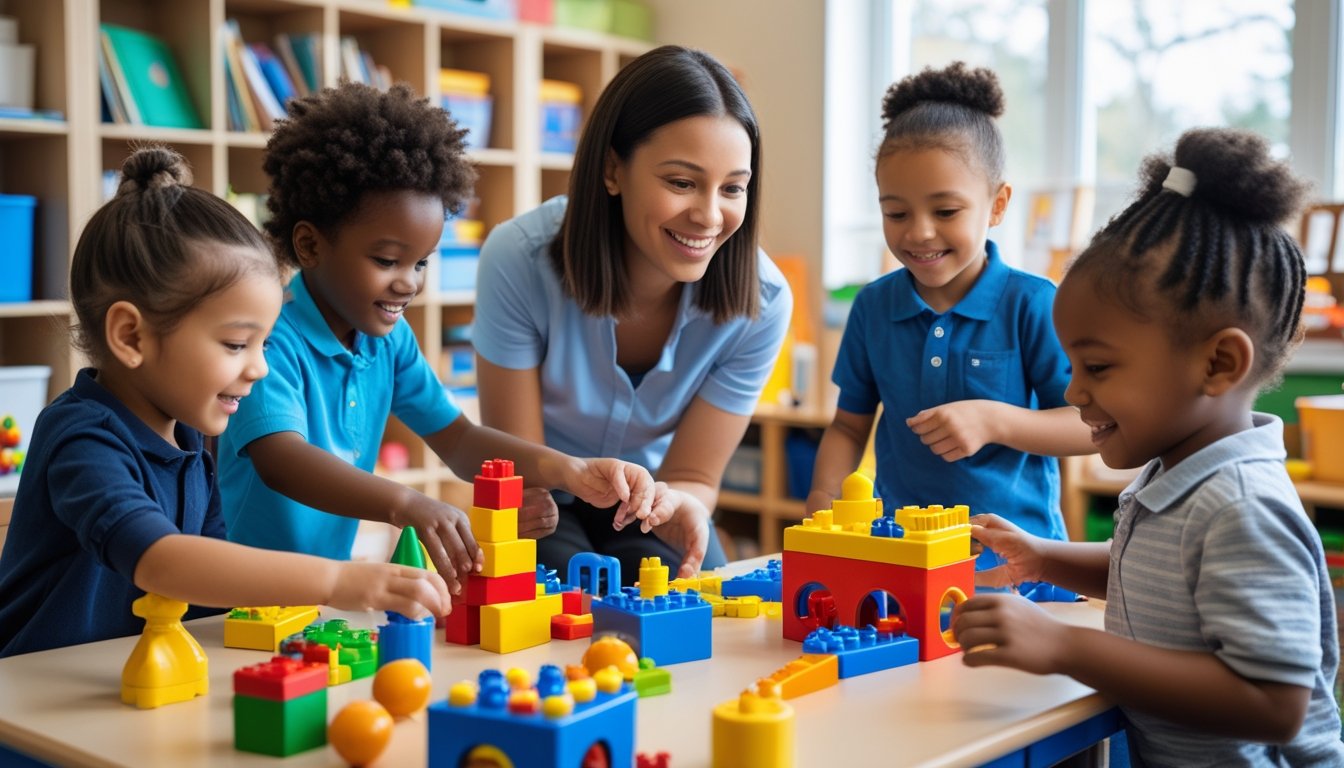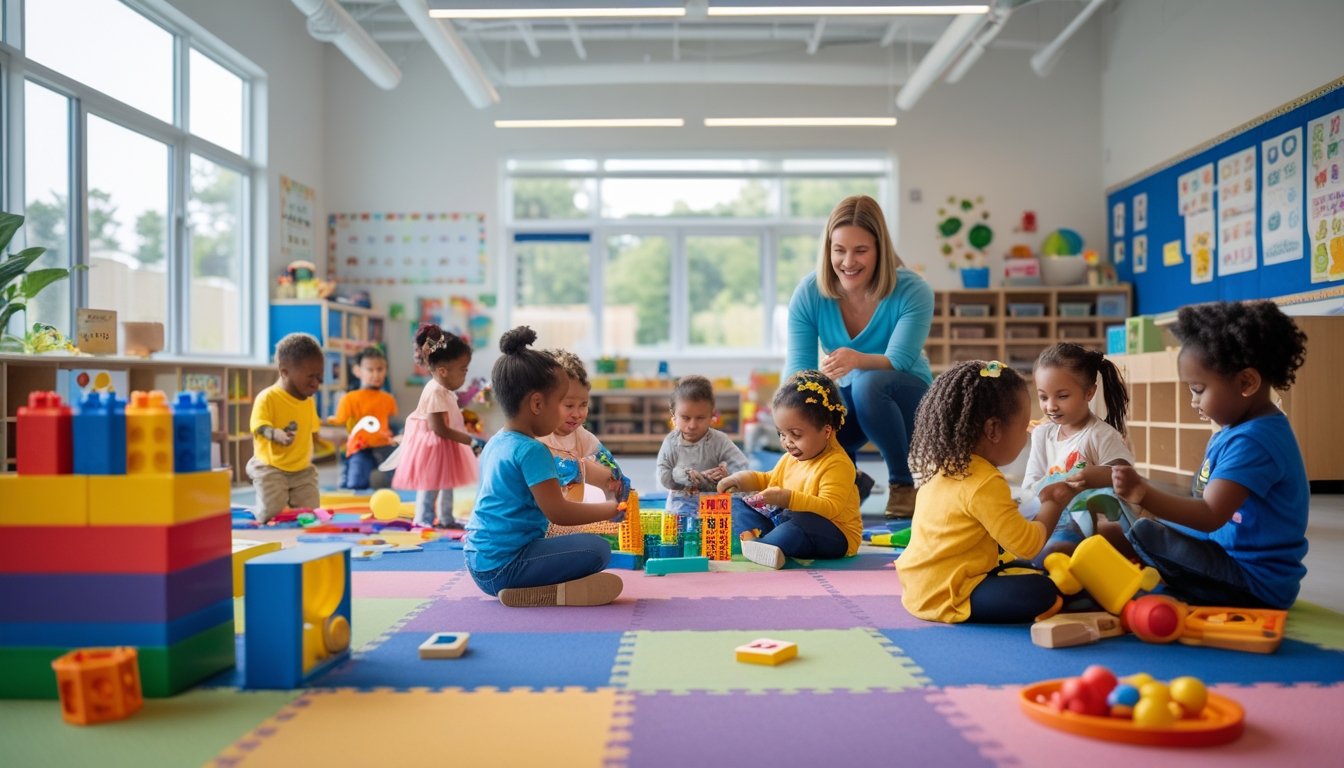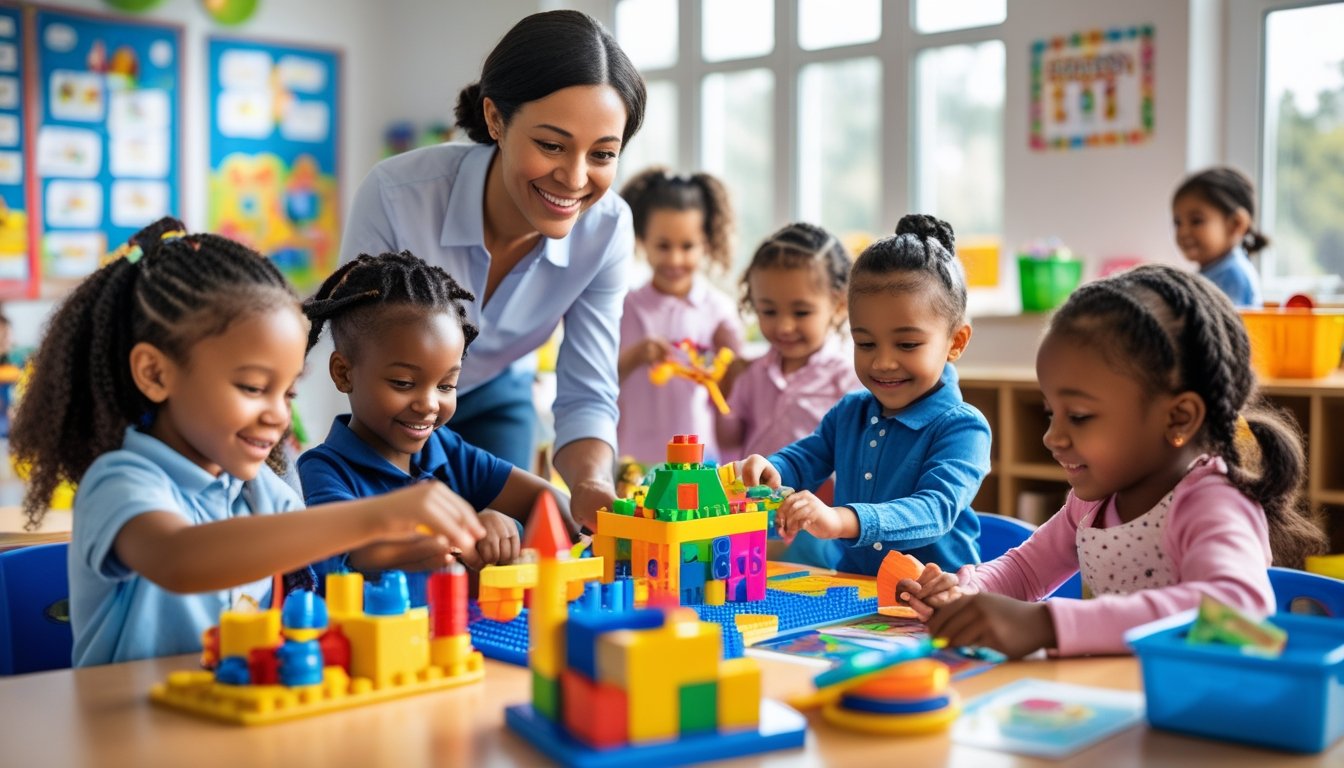Late updated: 09 Aug 2025 20:08
Written by:
The Benefits Of Play-Based Learning For Young Learners: Enhancing Development Through Exploration
Play-based learning has surged as a cornerstone of early childhood education, transforming traditional teaching methods with creativity and exploration. By incorporating fun and meaningful play activities, we cultivate an environment where young children thrive. Play-based learning not only triggers cognitive development but also nurtures social and emotional skills crucial for lifelong success.

In our journey within educational settings, we have observed that play is more than mere recreation; it is a powerful catalyst for growth and discovery. Children engage with their surroundings, solve problems, and develop a natural curiosity, which are essential for laying a strong educational foundation. This approach respects each child's individuality, allowing them to learn at their own pace and according to their interests.
Play takes many forms, from pretend play and physical activities to more structured games, each contributing uniquely to a child's development. By embracing various types of play, we ensure that the learning experience remains dynamic and engaging, meeting the diverse needs of young learners. As we examine the numerous benefits and practical applications of play-based learning, we invite you to explore how this approach can make a significant difference in the education of children today.
Key Takeaways
- Play-based learning enhances cognitive, social, and emotional skills.
- Different types of play contribute uniquely to early education.
- Tailored play activities foster individual growth and curiosity.
Key Benefits of Play-Based Learning for Young Learners
Play-based learning offers many advantages, promoting a child's development in varied aspects. It encourages cognitive growth, strengthens social and emotional skills, boosts physical abilities, and nurtures creativity.
Cognitive Development and Critical Thinking
In play-based learning, children explore and question their environment through play scenarios. They engage in hands-on experiences that enhance problem-solving skills and foster critical thinking. For instance, during role-play activities, children are often tasked with solving conflicts, promoting cognitive development. Language development is a significant aspect too, as kids learn new vocabulary and concepts. This form of learning builds a foundation for curiosity and independent thought, essential for future academic success. Through imaginative play, young learners deepen their understanding of complex ideas in a natural setting, which drives their desire to learn more.
Social and Emotional Growth
Play-based learning is instrumental in developing social skills and emotional intelligence. As children interact in group activities, such as cooperative games, they learn collaboration and cooperation. These experiences help them to understand and regulate emotions, an essential part of emotional development. Social skills are honed as they practice sharing, taking turns, and resolving conflicts with peers. Emotional intelligence grows as they become more aware of their feelings and learn to empathise with others. Self-regulation is another critical skill gained, allowing kids to manage their emotions and behaviour effectively within group settings, preparing them for later life interactions.
Physical Development and Motor Skills
The physical aspect of play-based learning cannot be understated. Children engage in activities that boost physical development and enhance motor skills. Gross motor skills are improved through outdoor games that involve running, jumping, and climbing. Meanwhile, fine motor skills are honed through tasks like drawing, cutting, or building blocks. These physical activities are crucial for overall health, coordination, and body awareness. As children physically interact with their surroundings, they develop a sense of spatial awareness and balance. This physical engagement not only supports their health but also prepares the groundwork for future sports and physical education.
Creativity, Imagination, and Self-Expression
Creativity and imagination are central to play-based learning. Young learners are encouraged to express themselves through various creative outlets like storytelling, role-playing, and art. These activities stimulate creative thinking and allow children to explore new ideas. Imaginative play promotes a rich imagination, which is critical for problem-solving in later life. Self-expression is supported as children create narratives and scenarios, articulating their thoughts and emotions. Encouraging creativity not only builds confidence but also enhances communication skills, as children learn to express ideas clearly. This nurturing of creativity and self-expression is vital for a child's all-round development and personal growth.
Types of Play and Their Influence in Educational Settings

Play-based learning provides a multifaceted approach, blending various types of play such as free, structured, and outdoor play. These play types contribute to holistic child development by enhancing problem-solving abilities and social interaction. Our exploration highlights their critical roles.
Free Play and Guided Play
Free play offers young learners the chance to explore at their own pace. They become the "captains of their own ship," making choices and setting their own objectives. This autonomous exploration fosters creativity and independence, bolstering problem-solving skills and sparking curiosity.
In contrast, guided play balances freedom with some adult direction, enhancing educational outcomes. Educators subtly guide play activities, integrating learning goals without directing every step. This approach allows children to engage deeply while benefiting from structured learning elements.
Structured and Outdoor Play
Structured play involves activities with specific goals, often designed by educators. It provides a framework for developing particular skills, such as teamwork and communication. These scenarios are useful in group settings where collaboration is key.
Outdoor play is crucial for physical and emotional development, offering a vast array of opportunities for sensory experiences. Activities like climbing and running not only build physical skills but also improve social interaction. Being outdoors stimulates curiosity, encouraging children to ask questions about their environment.
Incorporating Play in Schools and Home Learning
Incorporating play into educational settings bridges traditional learning methods and innovative approaches. Schools can integrate play in lessons using problem-solving activities and minimise rigid structures. Play in the classroom promotes engagement and motivation, making learning meaningful.
At home, parents can create playful learning spaces with simple tools. Activities like building blocks or storytelling sessions stimulate critical thinking. In both environments, we must recognise the importance of play as foundational for lifelong learning, promoting both academic and social-emotional skills.
Frequently Asked Questions

Play-based learning offers myriad benefits for young learners by enhancing their cognitive, social, and emotional development. It fosters essential skills that contribute to their academic readiness and offers marked contrasts to more traditional educational methods.
What are the key developmental benefits of play-based learning in early childhood?
Play-based learning stimulates brain development, allowing children to explore their senses and engage in imaginative play. This method helps with problem-solving and critical thinking. Additionally, it strengthens memory and promotes initiative, fostering holistic growth.
How does play-based learning influence a child's emotional and social skills?
Engaging in play-based activities boosts emotional resilience and social abilities. Children learn to express their emotions, cultivate empathy, and develop essential cooperation and communication skills. These interactions contribute to a strong sense of independence and confidence.
What are some effective examples of play-based learning activities?
Activities that encourage exploration and creativity are integral to play-based learning. Examples include role-playing games, building blocks, outdoor exploration, and science-based tasks. These activities promote spatial awareness and foster scientific enquiry while remaining enjoyable and engaging.
Can play-based learning impact a child's early academic readiness, and if so, how?
Play-based learning prepares children for academic success by developing core skills such as language, numeracy, and literacy through interactive play. By engaging in activities that mimic real-world scenarios, children gain a stronger foundational understanding, easing their transition into formal education.
What does current research say about the long-term effects of play-based learning?
Research underscores the enduring advantages of play-based learning, citing improved cognitive abilities and a strong foundation for lifelong learning. Benefits include advanced social competencies and emotional maturity, contributing to well-rounded individuals who are adept at navigating complex situations.
How does play-based learning compare to traditional education methods?
Unlike traditional methods focused on structured instruction, play-based learning emphasises experiential learning. It nurtures creativity and critical thinking skills in a dynamic setting. While traditional methods prioritise direct teaching, play-based approaches provide a student-centric environment promoting autonomy and intrinsic motivation.
